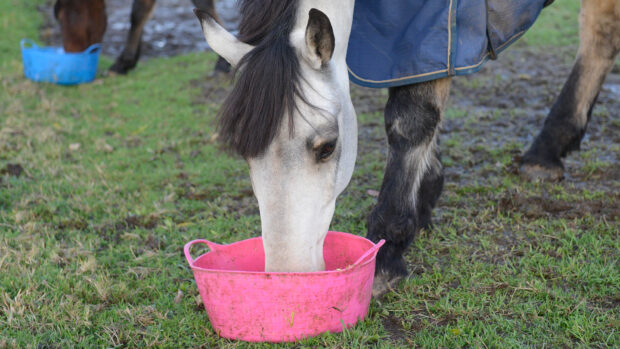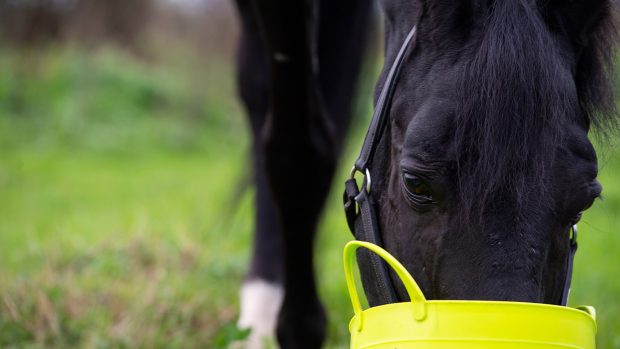More articles on equine nutrition
Q: I have to restrict my horse’s grazing over the summer but how can I make sure that I am still providing the essential vitamins and minerals and the right ratio of forage?
Are there any signs I should be looking out for that would reveal he is lacking in something?
LM, South Devon
As part of the H&H/Dodson & Horrell Feed to Win campaign (30 April), we asked D&H’s nutritionist, Teresa Hollands, for her advice.
“It is a sobering thought that the majority of horses in light work will get excess calories from ‘fresh air’ [average grazing] if they are turned out 24hrs a day,” she said.
“It is therefore quite a challenge for us to keep our horses healthy, physically and mentally. The more exercise you can do, the longer he can stay out at grass. Slow, but active exercise burns fat.
“Remember that horses evolved to eat for 60 per cent of their time; they are trickle-feeders and have a physiological and psychological need to eat almost continuously. Dogs, on the other hand, are meal-eaters and spend 80 per cent of their time asleep!”
Teresa explains the importance of not restricting bulk or nutrients when you are calorie-counting.
“If you are restricting the calories and bulk that he is getting from grass you have to replace it with low-calorie, bulky food to keep his gut working,” said Teresa. “Research shows that reduced forage — grass, hay and haylage — increases the risk of gastric ulcers, stereotypic behaviour, dental problems and colic.
“Try to maximise the amount of low-calorie fibre your horse eats — hay soaked for 12hrs, oat or barley straw — to replace the higher calorie grass; this will keep his gut and mind healthy by providing fewer calories and more bulk.
“You then need to balance his other nutrients. Research has shown that spring and summer grazing are deficient in minerals and soaking hay leaches vitamins and minerals. Protein is also needed for muscle development and cell renewal.
“If he is lacking calories [energy], then he will lose weight, which you will see, but use a weightape to monitor changes,” explained Teresa.
“You won’t see the effect of the other nutrients for a long time, but the signs could be poor foot condition, dull coat, increased susceptibility to illness and poor muscle development.”
Teresa suggests balancing his diet by:
• Feeding Equi-bites by hand if you think you might be tempted to increase the amount in his bucket
• Feeding a balancer such as Ultimate Balancer — find a coffee cup, for example, that holds the correct amount to help prevent overfeeding
Information
Dodson & Horrell nutritional advice line, tel: 08453 452627 www.dodsonandhorrell.com
This article was first published in Horse & Hound (21 May, ’09)
Looking for more articles on equine nutrition?



